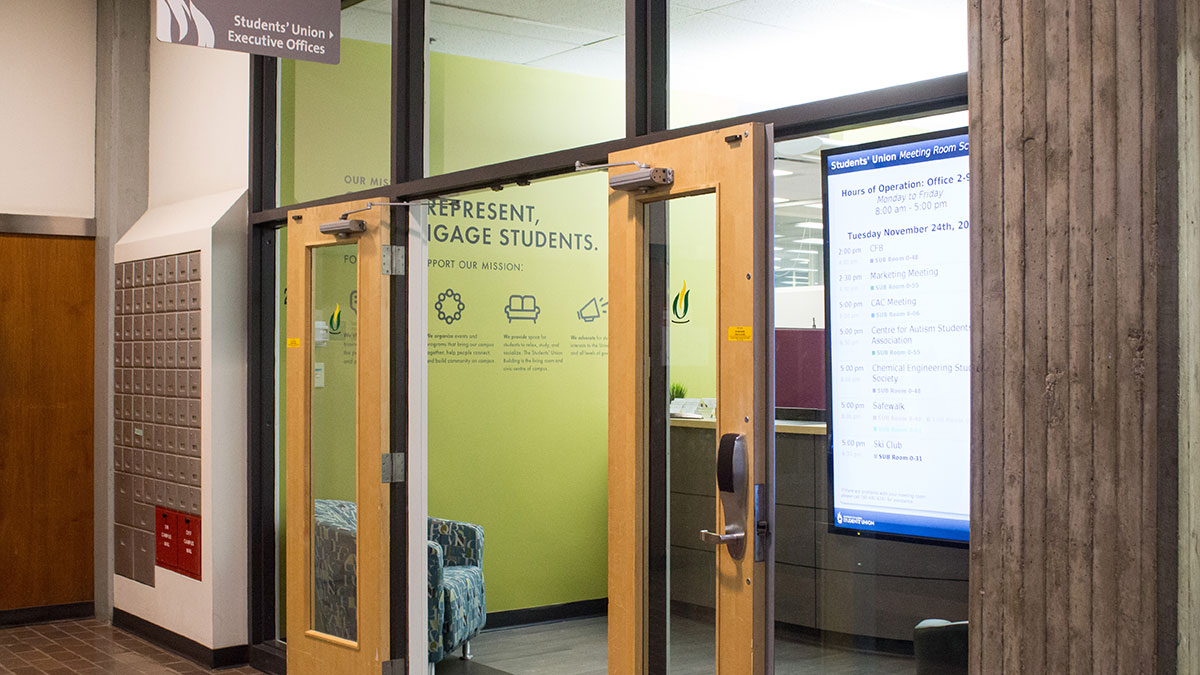 Christina Varvis
Christina VarvisOn Nov. 14, the Wildrose Party nearly unanimously approved a policy proposal “to allow every student to choose whether or not he/she wishes to become a dues-paying member of a student association, in each year of enrollment at a post-secondary education institute.” So basically, you shouldn’t need to pay SU fees along with your tuition. This is a hugely misguided and short-sighted move, and fails to recognize the importance that an SU plays in student life, or even why the SU is important to begin with.
What grates me the most about the proposal wording is: “Much like mandatory membership and dues to any public sector union, these dues are often used to advance certain, often progressive, political agendas.”
The cool thing about Students’ Unions is that any student can put themselves forward to run, and can campaign based on any issue that they feel is the most important to the student body. If anything, it’s more democratic than the existing faceless unions that operate in huge corporations. Each incoming year elected representatives can work on issues that, based on their successful campaigns, are ones that students care about.
If you think the SU agenda is too progressive, run a campaign to be an executive on a conservative platform. If the majority of students agree with that, you’ll win. That’s what the NDP did, and that’s what the Wildrose did to get the official minority. That’s the cool thing about democracy.
Students’ Union fees aren’t decided on a whim. The budget is carefully crafted to ensure that students will be able to access services that are available to them. But since there’s still going to be those who don’t want to pay the fees, let’s consider what would happen if Students’ Union fees were optional at the U of A. Obviously, there would be an initial exodus of Wildrose types, as well as people who haven’t bothered to learn what the SU does. First, overall revenue would plummet, then the SU budget would drop, so services would either decline in quality or disappear completely. Scholarships funded by the SU would dwindle. Any SU-operated business (The Daily Grind, RATT, Dewey’s, etc) would see staffing cuts. Then more would leave because your Students’ Union fees exclusively pay for the campaign for next year’s SU executives to be elected. Then you have a student body without access to clubs, wellness services or simply things that improve quality of student life, like groceries on campus or free crisis counselling.
While I believe that the policy is misguided, a second policy proposal that wasn’t read at the Nov. 14 session highlights a glaring problem with the University of Calgary’s Student’s Union. The proposal states that the SU should make their budget information public, which is completely fair. Currently, according to the policy proposal, the University of Calgary SU doesn’t post their complete budget, which definitely should be done to keep their elected representative bodies accountable. The UAlberta SU post their official budget in exhaustive detail (including expenditures for the past year) publicly on their website, but they are one of the few post-secondary student’s unions in Alberta that does. Accountability is part of what keeps the SU honest, so the other schools should definitely follow suit.
Coming into the university setting as a student, you are at the mercy of university administration, faculty policies and the government. There’s so many levels where your rights as a student can be compromised, and so little opportunities for students to gain access to services. The Students’ Union campaigns to keep all of these, and implying that they are simply pushing a progressive agenda is ignorant.
Based on the Wildrose Party’s feelings on taxes, this policy change is unsurprising. They really do want to seem like “not as just an old people’s party,” and I respect that. But targeting SUs just seems like an attempt to get a win by appealing to ideology instead of sense.
Correction: A Nov. 24 version of this article stated that “the Wildrose Party unanimously approved a policy proposal” allowing every student the option of becoming dues-paying members of student associations. This information was taken from a Nov. 17 Gauntlet article. On Nov. 14, The Metro published an article stating “the policy change was passed almost unanimously.” This Gateway article has been updated to say “nearly unanimously.”

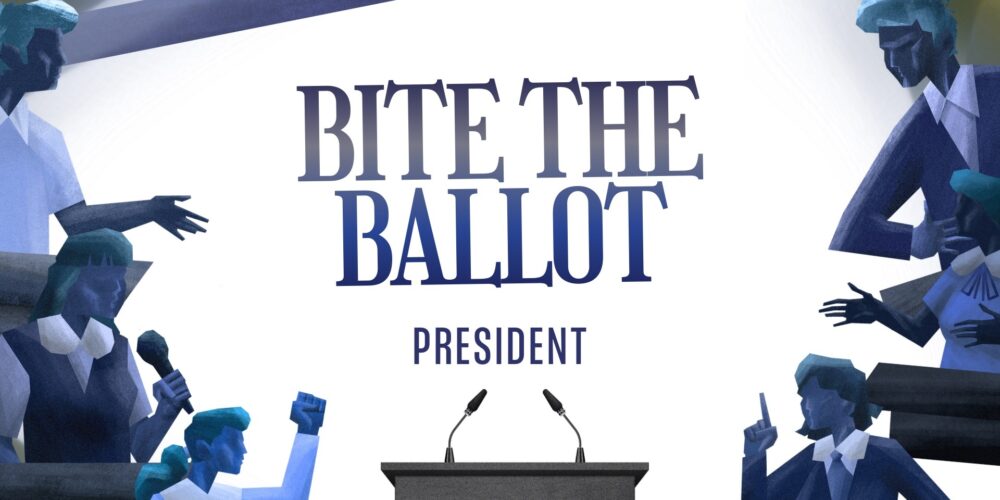
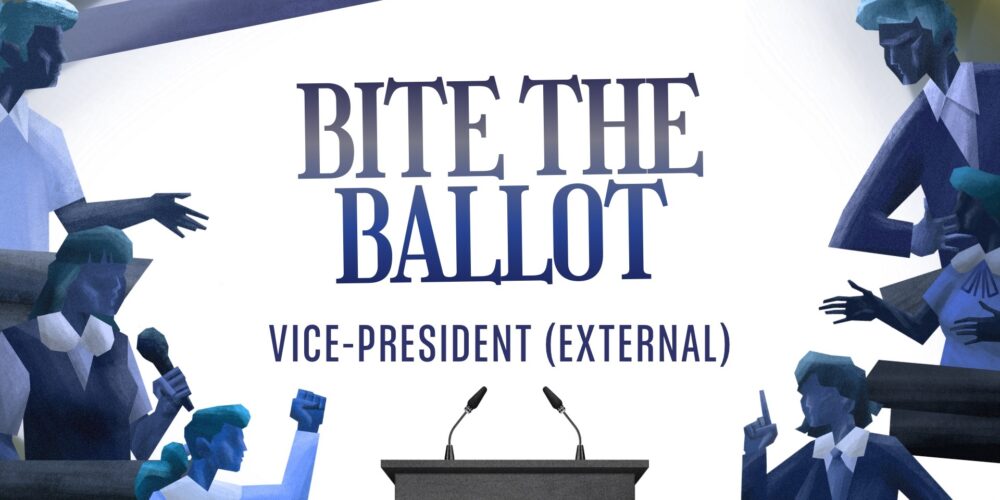
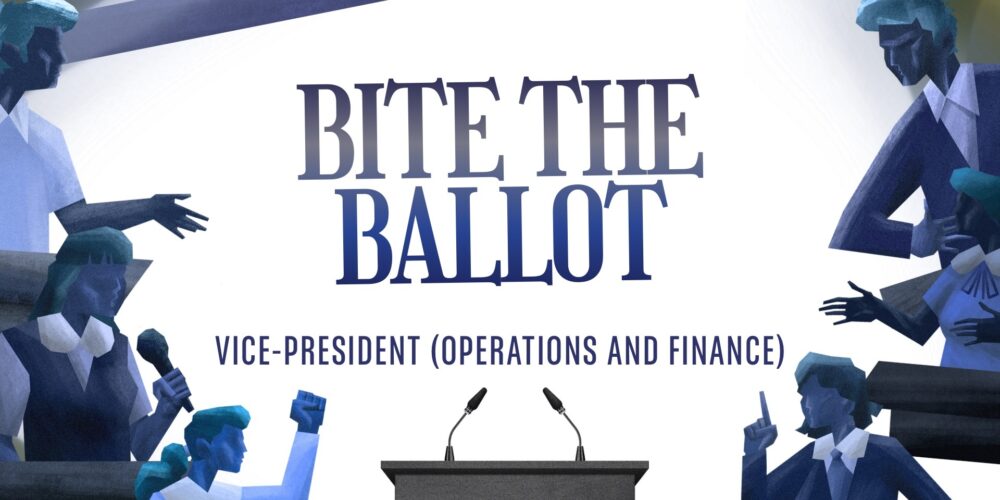
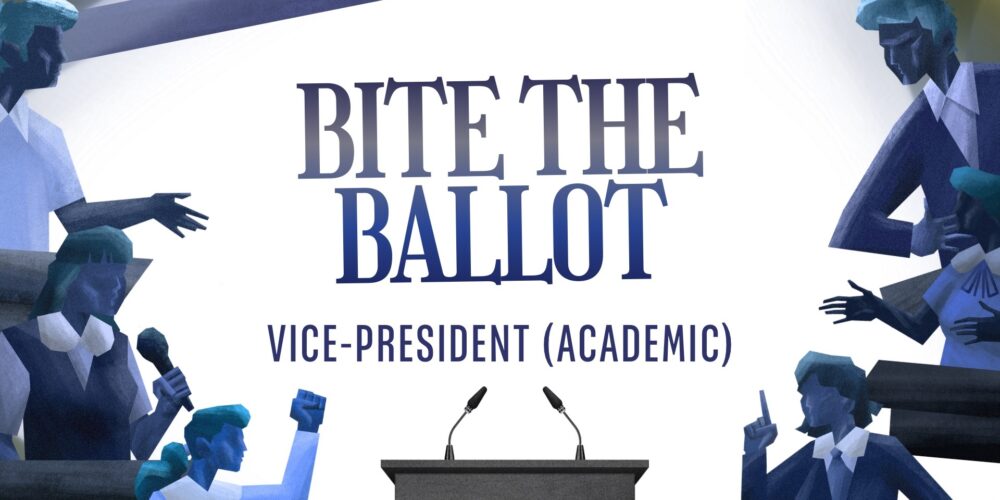
“On Nov. 14, the Wildrose Party unanimously approved…”
As someone present at the Wildrose AGM on Nov. 14, 2015, who voted on this policy, AND as a UofA grad, I can only say that I don’t know what Ms. Chrysler is talking about and I don’t believe that she does either. “Unanimously approved”? This policy was seventh on the ballot and was approved by a vote held among those members attending; and, while Policy 7 did pass with overwhelming support, the vote was by no means “unanimous.” NONE of the policies voted on by the hundreds of members present passed “unanimously.”
“So basically, you shouldn’t need to pay SU fees along with your tuition.”
Not if you elect to forgo the benefits of SU membership, that’s correct. It’s an option that I highly doubt many students would actually choose in reality if it were offered… which makes this hysteria over the IDEA of offering such a choice all the more telling.
“The cool thing about Students’ Unions is that any student can put themselves forward to run, and can campaign based on any issue that they feel is the most important to the student body.”
Policy 7 was brought forward by Alberta post-secondary students who were passionate about it and campaigned hard for it. It was a matter of little real concern to the majority of adult WR members at the AGM, but they could see the energy and excitement that these young activists brought to the issue, which featured the best campaign of any of the policies. Democracy is not a one-way street: there are many bodies and venues where one can pursue issues one feels passionate about. The difference, however, is that neither I nor the student WR activists are COMPELLED to be a member of the WR, or of other political party, in order to live in Alberta or to take part in the political process here.
If SU membership were optional, I don’t see how that would affect the ability of any SU member to put themselves forward to run or campaign on any issue.
” If anything, it’s more democratic than the existing faceless unions that operate in huge corporations.”
Defending SUs by attacking unions in general! Interesting tack. Well, as a former CUPE and AUPE member myself (who actually attended meetings of my local), I can personally say that I found these bodies to be relatively responsive compared with the SUs that I was previously forced to join. Far from “faceless,” the faces at those meetings were mostly those of my co-workers, as opposed to some narrow social clique that I wasn’t a part of. The main impediment to the realization of democracy in both was member apathy.
But personally I found I was far less apathetic as a member of CUPE and AUPE. I got involved because I knew exactly how much was coming off my paycheque in union dues every month. By contrast, my enforced payments to the SU at UofA just blended in with all my other fees. I would say this was also the case for many others as well: a much larger percentage of the membership at UofA seemed apathetic and disengaged compared to the “real” unions. Forcing students to consciously consider their SU fees might, if anything, work to reverse that trend.
“If you think the SU agenda is too progressive, run a campaign to be an executive on a conservative platform.”
Yes, good luck with that. Maybe you should give that advice to the students at Yale, Mizzou, Occidental, KU, Harvard, Capetown…well, you get the picture. Just how long do you imagine it would take before a student running on such a campaign was accused of creating an “unsafe space” for his peers and sanctioned by the administration?
I agree that democracy is quite cool…where it’s allowed to exist. But in situations where it clearly wouldn’t be, no one ought to be obliged to pay for some sham version of it.
Fair enough. Forego the fees, figure out how much effect student union advocacy has had on keeping tuitions down, then increase the forego-ers tuition to the levels they would otherwise have been. Otherwise they are just freeloading on past generations of fee payers.
That’s a completely absurd position to take, for two reasons.
1) Obviously, there’s no way that you really determine what effect SUs have had on keeping tuition where it is. I mean, to take another example, Ta-Nehisi Coates’ proposal to look into the historical costs of redlining and Jim Crow for African Americans sounds daunting, but at least there you’re dealing with dollars and cents! Quantifying the effects of nebulous “advocacy” on political decision makers? Forget about it: you’ll never arrive at a real number. So what you’re proposing is, in fact, arbitrary punitive measures aimed at squeezing “scabs.”
2) Moreover, you’ve basically proven the Wildrose Party’s point. Advocacy for lower tuition fees IS politcal advocacy. Sure, most students have a vested interest in it, but some may, on principle, believe that post-secondary students (including themselves) should pay more to free up public monies for poverty relief/green energy/police/debt repayment, what have you. They shouldn’t be FORCED to subsidize political activities contrary to their beliefs.
So it’s OK for freeloading to occur if there’s no way to determine to what extent?
It’s not freeloading. If SU advocacy really is so essential to keeping tuition low, and the SUs, upon becoming optional, see a massive exodus of membership and influence (though if the former is true, I have no idea why the latter would follow), then presumably tuition would rise and everyone would wind up paying more.
Just so we’re absolutely clear, I’m obviously not talking about any services actually provided via the SU (psych., dental, etc.). Some people have chosen to wilfully misunderstand the WR Party’s position by saying that those who opt out would freeload by continuing to receive THOSE services as well. Clearly not: if you opt out and don’t pay the SU fee, then you’re out on those goodies as well (which is why I really don’t think many people would take this option in practice). But tuition is what it is: you can’t quantify how much SU advocacy played into setting the current amount.
For good or ill! I would suggest that the outrageous antics of SUs in Quebec may have sapped public sympathy against tuition hikes there (not to mention that steeper hikes may ultimately have been necessitated by years of keeping tuition unaffordably low, putting off needed infrastructure upgrades and repairs). The current demands by extremely politicized SUs in the U.S. for ever more administrative staff (therapists, “diversity” guides, etc.) are no doubt going to result in further tuition increases down the line. Want to kill off the SUs even faster? Consider what would happen if, after somehow crunching the numbers (that don’t exist), those who opted out ended up deserving a discount.
You seem certain that it can’t be quantified. Is that an assumption?
I am certain, and it’s not an assumption, it’s a fact. Any attempt to quantify a supposed tuition discount resulting from student union advocacy would be politically tainted from the start. Moreover, even if the impact of student union activities on tuition COULD be quantified objectively, it could well be that those activities resulted in higher rather than lower tuition; which would (under your scheme) entitle those who opt out of a SU to a discount, rather than a tuition hike.
Note that the largest single assumption of this exchange was made by you, not me: “figure out how much effect student union advocacy has had on keeping tuitions down…” That assumes that SU advocacy has had that effect, rather than the opposite. You persist in that assumption with your next comment: “So it’s OK for freeloading to occur if there’s no way to determine to what extent?” Again, that assumes that there’s “freeloading.”
I can see no conceivable way to empirically determine the effect of pure political advocacy on the price of this particular service. But neither do I automatically assume that, if such a thing were possible, the results would inevitably help me or hurt me, as you seem to do.
I agree, students unions are no business of the Wildrose, or of any other party. So why do we need a provincial government law mandating how they operate. Let’s repeal those laws, and let the student union operate like any other organization in a free society.
Imagine if I set up a tennis club, and then simply because I was friends with some politicians, I got them to pass a law saying everyone in my neighbourhood had to join the tennis club and pay $200 a year for the privilege.
Would the fact that they would be allowed to vote for the president of the tennis club make that alright? Of course not.
Such neighbourhoods already exist, usually centred around a golf course or some other recreational facility. Condominiums work in exactly the same way, too. Looking further afield, other such communities exist too … e.g. the community of those who own and drive cars are all forced to buy insurance. Examples abound. It turns out there is a benefit to synergistic action (in this case funding something) that exceeds the sum of the inputs. That is why it happens….and it’s why radical libertarianism has never really taken hold anywhere.
While I basically hate the Wild Rose Party in every way possible, I totally agree with them here. SU should absolutely be opt-in.
that would make no sense. how would it be fair that some students would foot the bill for services that all students use. it’s only about 1% of your tuition and it ensures not only student services but a strong student representation in the province. i’ve been told by people who are involved with that kind of stuff that student unions have far more policy changing power than most people realize.
It’s called a membership card. It’s really not that difficult.
There are SU-derived benefits that accrue to every student the minute they step on campus for the first time. We’d also have to figure out how to value those benefits and ensure that the students without the membership card are charged accordingly. For example, if we find that jurisdictions with opt-in SUnions generally have tuitions that are x% higher, then those students without the membership card will be charged x% more.
As alluded to, it only takes one action to get that snowball rolling and one compounding problem after another would make it quite difficult to get things back on track. Options and choices are good, but sometimes the lack thereof isn’t always a bad thing either.